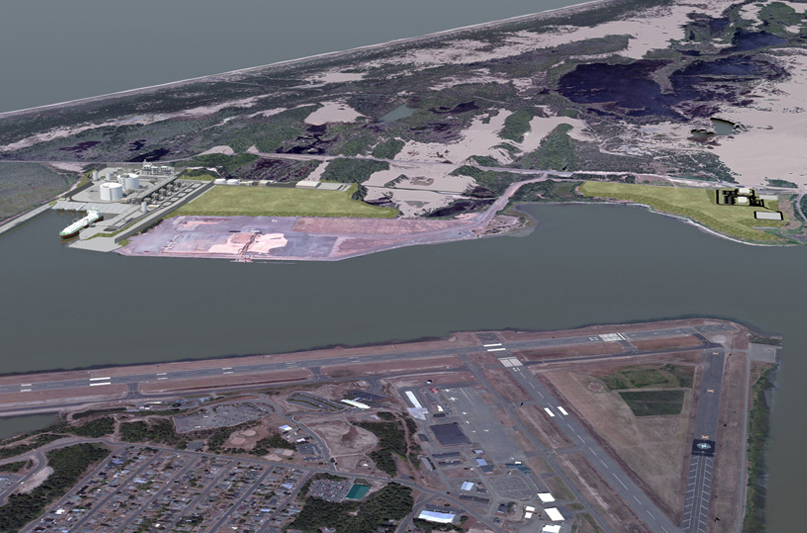 The United States Coast Guard (USCG) has released a letter of recommendation stating that the waterway around the proposed site of the Jordan Cove Liquefied Natural Gas (LNG) Terminal is suitable for marine traffic associated with the LNG terminal. The Jordan Cove LNG Terminal, a project proposed by Pembina Pipeline Corporation of Calgary, Canada, would serve as a storage and processing plant for natural gas shipped through the Pacific Connector Gas Pipeline from the U.S. and Canadian Rockies. The USCG received notification of the company’s proposal to build in Coos Bay, Oregon on January 9, 2017. Jordan Cove LNG worked with Coast Guard Sector Columbia River personnel, emergency response providers, and community stakeholders to assess issues with tankers moving in and out of Coos Bay.
The United States Coast Guard (USCG) has released a letter of recommendation stating that the waterway around the proposed site of the Jordan Cove Liquefied Natural Gas (LNG) Terminal is suitable for marine traffic associated with the LNG terminal. The Jordan Cove LNG Terminal, a project proposed by Pembina Pipeline Corporation of Calgary, Canada, would serve as a storage and processing plant for natural gas shipped through the Pacific Connector Gas Pipeline from the U.S. and Canadian Rockies. The USCG received notification of the company’s proposal to build in Coos Bay, Oregon on January 9, 2017. Jordan Cove LNG worked with Coast Guard Sector Columbia River personnel, emergency response providers, and community stakeholders to assess issues with tankers moving in and out of Coos Bay.
“We continue working with local officials and the port community to ensure that every measure is taken to ensure the excellent safety record of the marine transport of LNG is continued if an LNG terminal is built in Coos Bay,” said Coast Guard Captain William Timmons in a press release.
“At this point, the waterway can accommodate the types of vessels associated with the proposed Jordan Cove LNG facility. We are working together to make sure that any resource issues are resolved through the Emergency Response Planning Process.”
The Federal Energy Regulatory Commission (FERC) and the USCG will continue to work closely together to compile an Environmental Impact Statement (EIS) that covers the possible effects of the proposed terminal and boat traffic. Within the EIS, FERC will consider every aspect of construction from environmental to socioeconomic to security.
If FERC gives the site its approval, Jordan Cove LNG will have to submit an Emergency Response Plan and Transit Management plans.